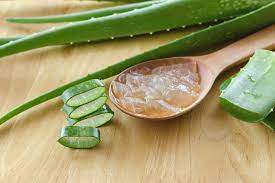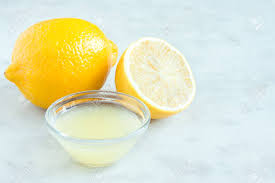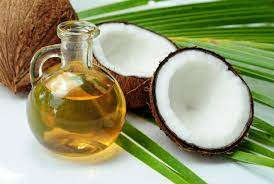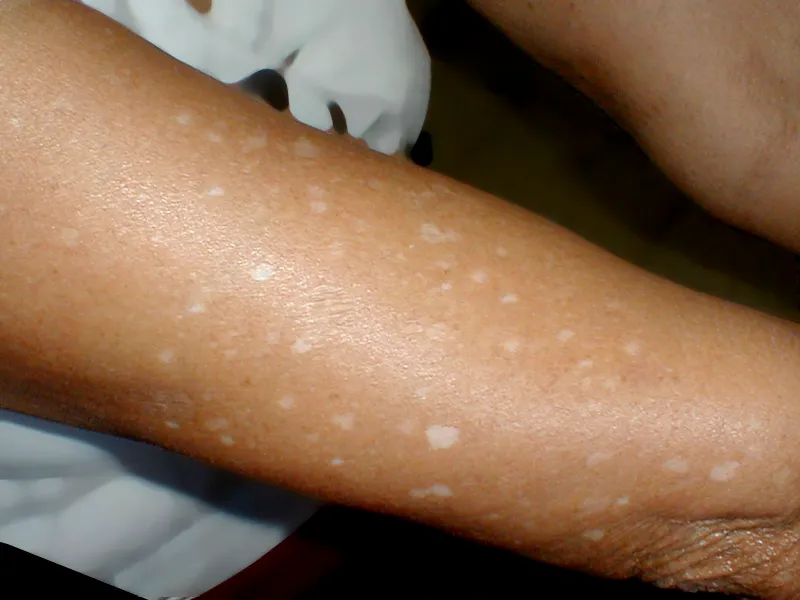What Are White Dots
White dots on skin can have a variety of causes, including autoimmune disorders, viral infections, sun damage, and benign cysts. Some common conditions that can cause white dots on the skin include vitiligo, milia, solar lentigines, idiopathic guttate hypomelanosis, pityriasis alba, and molluscum contagiosum. Scroll till the end to find out the causes, symptoms, and treatment of white dots on skin.
It is important to consult a dermatologist for proper diagnosis and treatment. A dermatologist can examine the white dots on your skin, and based on their appearance and location, they can determine the underlying cause and recommend the appropriate treatment. This may include topical creams, oral medications, or light therapy. In some cases, such as with milia, the white dots may not require treatment and may resolve on their own.
It’s important to note that white spots can appear on any part of the body and it’s best to consult a medical professional to determine the cause and if they are a cause for concern.
White spots can appear anywhere on the skin that is exposed to the sun such as:
- Face
- Arms
- Legs
- Scalp
- Nails
- Mouth
What causes small white spots on the skin
White dots on the skin can have a variety of causes, including autoimmune disorders, viral infections, sun damage, and benign cysts.
Some common conditions are mentioned below.
Causes And Symptoms Of White Dots On Skin
Vitiligo:
a loss of pigmentation in the skin, resulting in white patches or dots. The most common symptoms are white patches or spots on the skin, which can be accompanied by itching and burning sensations.
Milia:
small, white, benign cysts that form under the skin. They are often seen around the eyes, cheeks, and forehead and they are asymptomatic.
Sun damage:
white spots or dots on the skin, known as solar lentigines or age spots, can be caused by prolonged sun exposure. They are commonly seen on areas of the skin that receive the most sun exposure, such as the face, hands, and arms.
Idiopathic Guttate Hypomelanosis:
small, white, or light-colored spots that are usually seen on sun-exposed areas of the skin, they may be a sign of sun damage. They are asymptomatic but can be cosmetically unappealing.
Pityriasis alba:
scaly, itchy, white patches on the face and other sun-exposed areas of the skin, most commonly seen in children. It is a mild form of eczema, it is accompanied by itching and burning sensations.
Molluscum contagiosum:
small, flesh-colored, or white bumps that can appear anywhere on the skin, it is caused by a viral infection, and they can be itchy and painful.
It is important to consult a dermatologist for proper diagnosis and treatment. A dermatologist can examine the white dots on your skin, and based on their appearance and location, they can determine the underlying cause and recommend the appropriate treatment.
Prevention
Here are some ways to prevent this:
Protect your skin from the sun:
Use sunscreen with at least SPF 30, wear protective clothing, and seek shade when the sun is strongest.
Avoid picking at or scratching your skin:
This can cause irritation and lead to the formation of white dots.
Maintain a healthy diet:
Eating a balanced diet that includes plenty of fruits and vegetables can help keep your skin healthy.
Keep your skin clean:
Gently cleanse your skin twice a day with a mild cleanser and avoid using harsh exfoliants.
Avoid smoking and excessive alcohol consumption:
These habits can damage the skin and increase the risk of developing white dots.
See a dermatologist if you have a history of skin conditions, such as eczema or psoriasis, and have any new symptoms.
It is important to note that some causes of white dots on the skin, such as vitiligo, are not preventable. In these cases, early diagnosis and treatment can help manage the condition.
Natural Treatment To Reduce White Dots On Skin
There are a few home remedies that may help reduce the appearance, but it’s important to keep in mind that some causes of white dots on the skin, such as vitiligo, require proper medical treatment. Here are a few home remedies that may be helpful:
Aloe vera For White Spots:

Aloe vera gel can help reduce inflammation and promote the healing of the skin. Apply aloe vera gel to the affected area and leave it on for 15-20 minutes before washing it off.
Turmeric For White Spots:

Turmeric is known for its anti-inflammatory properties and may help reduce the appearance of white dots on the skin. Mix turmeric powder with honey to make a paste and apply it to the affected area. Leave it on for 15-20 minutes before washing it off.
Lemon juice For White Spots:

Lemon juice is rich in Vitamin C and may help reduce the appearance of white dots on the skin. Apply lemon juice to the affected area and leave it on for 15-20 minutes before washing it off.
Coconut oil For White Spots:

Coconut oil is known for its moisturizing properties and may help reduce the appearance of white dots on the skin. Apply coconut oil to the affected area and leave it on for 15-20 minutes before washing it off.
It’s important to note that these remedies are not backed by scientific evidence and should be used with caution. Also, it is best to check with a dermatologist if the dots on the skin persist or worsen.
Should I Be Concerned About White Spots On The Skin?
White spots on the skin can be caused by a variety of conditions, some of which may require medical attention. It would be best to consult a dermatologist or other medical professional to determine the cause of the white spots and determine if they are a cause for concern. They may be caused by a fungal infection, vitiligo, a form of eczema called pityriasis alba or other skin conditions. In some cases, white spots may be a symptom of an underlying health condition, such as a nutritional deficiency. A proper diagnosis from a medical professional can help determine the best course of treatment.
Medical Treatment To Reduce White Dots On Skin
The treatment for white spots on the skin will depend on the underlying cause of the condition. Some common medical treatments for white spots include:
- Topical antifungal creams or oral antifungal medications for fungal infections
- Topical or oral corticosteroids to reduce inflammation and itching in eczema
- Topical or oral immunomodulators to help stabilize the immune system in conditions like vitiligo
- UV light therapy or depigmentation therapy for vitiligo
- Topical or oral antibiotics for bacterial infections
- Topical or oral medications for psoriasis
- Topical or oral medications for lichen planus
- Vitamin D analogs for pityriasis alba
- Topical or oral retinoids for seborrheic keratosis
It’s important to consult a medical professional to determine the appropriate treatment for your condition. They will make a diagnosis, and based on that will suggest the best treatment for you. Keep in mind that some treatments may require a long-term commitment and may not be completely effective.




